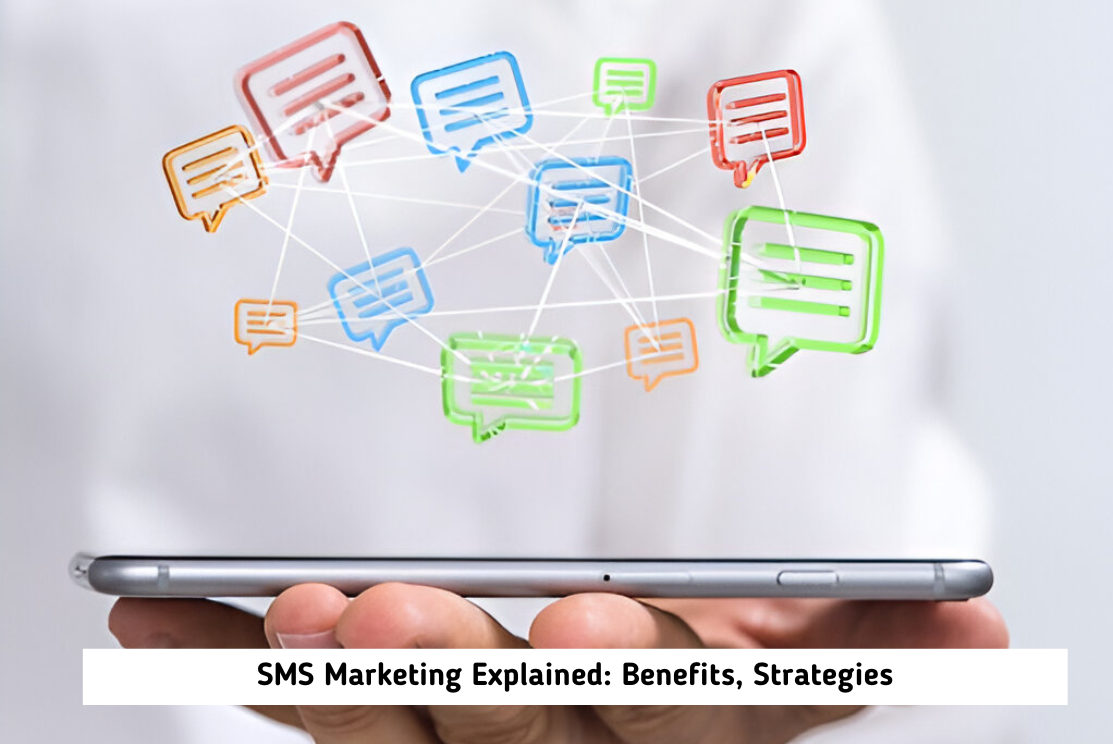Short Message Service (SMS) is already used by the majority of marketers in one way or another, such as providing discount codes, event reminders, or flash sale alerts. However, merely using SMS does not imply that you are taking full advantage of its potential benefits.
Perhaps your open rates are high, but what about conversions? Not at all. Or you are sending messages all over the world, but your subscriber list’s engagement is wildly inconsistent.
You can go beyond the fundamentals with the help of this tutorial. You will discover what effective SMS marketing looks like today, along with real-world examples, regulatory expertise, and tactics supported by experts that help international businesses achieve quantifiable outcomes.
Let us begin with the fundamentals: what is SMS marketing, and how does it function?
What is SMS marketing?
The practice of using text messages to send customers updates, promotions, and exclusive deals is known as SMS marketing. With the aid of this direct marketing channel, your company or small business can send brief messages—usually no more than 160 characters—straight to customers’ mobile devices.
There are several uses for text message marketing, including:
- Providing marketing with a tight deadline
- Reminding people of appointments
- Sharing special deals
- Requesting client feedback and follow-ups
- Giving updates on shipping
SMS marketing types
There are a few essential SMS marketing campaign kinds to consider. You will need timely promotions or relationship-building check-ins that improve ties with devoted clients if you want to use SMS as a conversion engine.
Every brand must take into account the two kinds of SMS: transactional and promotional.
Transactional SMS
Customer information such as order confirmations, shipping notifications, account updates, and payment details are all sent using transactional SMS, which is operational in nature.
Although they are not specifically marketing-focused, they will offer first-rate customer service and keep clients updated on purchases, accounts, or transactions pertaining to your company.
For example, a bank may alert consumers to questionable credit card activity, or an online retailer may provide delivery updates after a customer makes a purchase.
Actually, there are a variety of reasons why people choose to use SMS. Here is what SimpleTexting says is at the top of the list:
- Reminders for appointments and reservations (76%)
- Order updates and shipment tracking (68%)
- Alerts about sales or promotions (58%)
Promotional SMS
Promotional SMS informs opted-in subscribers about events, products, services, discounts, and coupons. These messages instill a sense of urgency and motivate individuals to do things like
- Buying anything
- Looking at a landing page
- Taking advantage of a temporary deal
Promotional SMS swiftly captures attention by sending time-sensitive information directly to people’s mobile phones. Strong calls to action, such as “Shop now” or “Get your code,” could be used in promotional texts that retailers send out when introducing new products or exclusive offers. Or, to motivate subscribers to act, you may provide a reward through your loyalty program.
How does SMS marketing work?

Obtaining consent is the first and most important stage in SMS marketing. Prior to sending any marketing text, a company needs the recipient’s express consent, which is typically obtained by a sign-up form or a checkbox on a website.
According to laws like the TCPA and GDPR, this is mandatory. Without permission, you run the risk of facing severe fines and losing the trust of your customers before the discussion has even begun.
With SMS marketing solutions like Sinch, you can create and start a campaign after a customer opts in. You may use these systems to schedule communications, segment your audience, personalize content, and monitor performance indicators like conversions, click-through rates, and delivery rates. In order to guarantee a consistent message across channels, they also link with your customer relationship management (CRM) software.
After that, a mobile carrier receives your message from the platform and transmits it to customers’ phones in a matter of seconds. The power of SMS lies in its instant transmission. Since messages are usually received in a matter of minutes, they generate immediate awareness that is unmatched by other mediums.
Among the elements of SMS marketing are
- A value-delivering, persuasive proposition in 160 characters or less
- Appropriate consumer opt-in with explicit consent and privacy guidelines
- Using a short code (5–6 digits) to increase transmitting volume and brand awareness
- A compelling call to action that generates precise, quantifiable response rates
How can one begin with SMS marketing?
Sending sporadic messages and hoping for clicks is not the only way to get started with SMS marketing. It does not entail trying to tack your new campaign onto the tails of an existing program and ignoring the distinctions between SMS and email marketing. Intention is the first step towards successful SMS marketing.
Alfredo dissected the three essential elements of any successful SMS marketing during his Email Camp session:
- Your marketing strategy: How you advertise your SMS program
- Your motivation: What you are providing in return for a contact number
- Your communication: How to maintain customers’ interest when they opt in
Best practices for SMS marketing

We have already stated this, but since it is so crucial, we will reiterate it: You must first create a contact list of individuals who have granted you permission to send them SMS messages before launching any kind of mobile marketing campaign. Only message those who have expressly chosen to participate.
A person does not consent to receive promotional messages just because they sign up for transactional updates. Their explicit consent is required.
Before launching a new SMS marketing campaign, it is crucial to speak with your legal team because, of course, we are not attorneys, and none of this information is legal advice.
In 2025, how will SMS marketing change?
Messaging is rapidly evolving. Though new technology is opening up new options, SMS remains the preferred method.
According to Sinch SimpleTexting, 66% of businesses now use SMS marketing—that’s up 55% in just four years. Even more telling? 67% aim to boost their spending in 2025.
FAQS
1. What is SMS marketing?
SMS marketing is a type of direct marketing in which companies send clients brief text messages (up to 160 characters) with updates, reminders, offers, and product promotions.
2. Is customer consent required for SMS marketing?
Yes, without a doubt. To comply with laws like the TCPA and GDPR, businesses must get users’ express opt-in agreement before sending them promotional messages.
3. What’s the difference between SMS and email marketing?
Whereas email permits longer content and greater design freedom, SMS is more instantaneous and succinct. SMS works best for short, urgent communications, yet it frequently has higher open rates.

